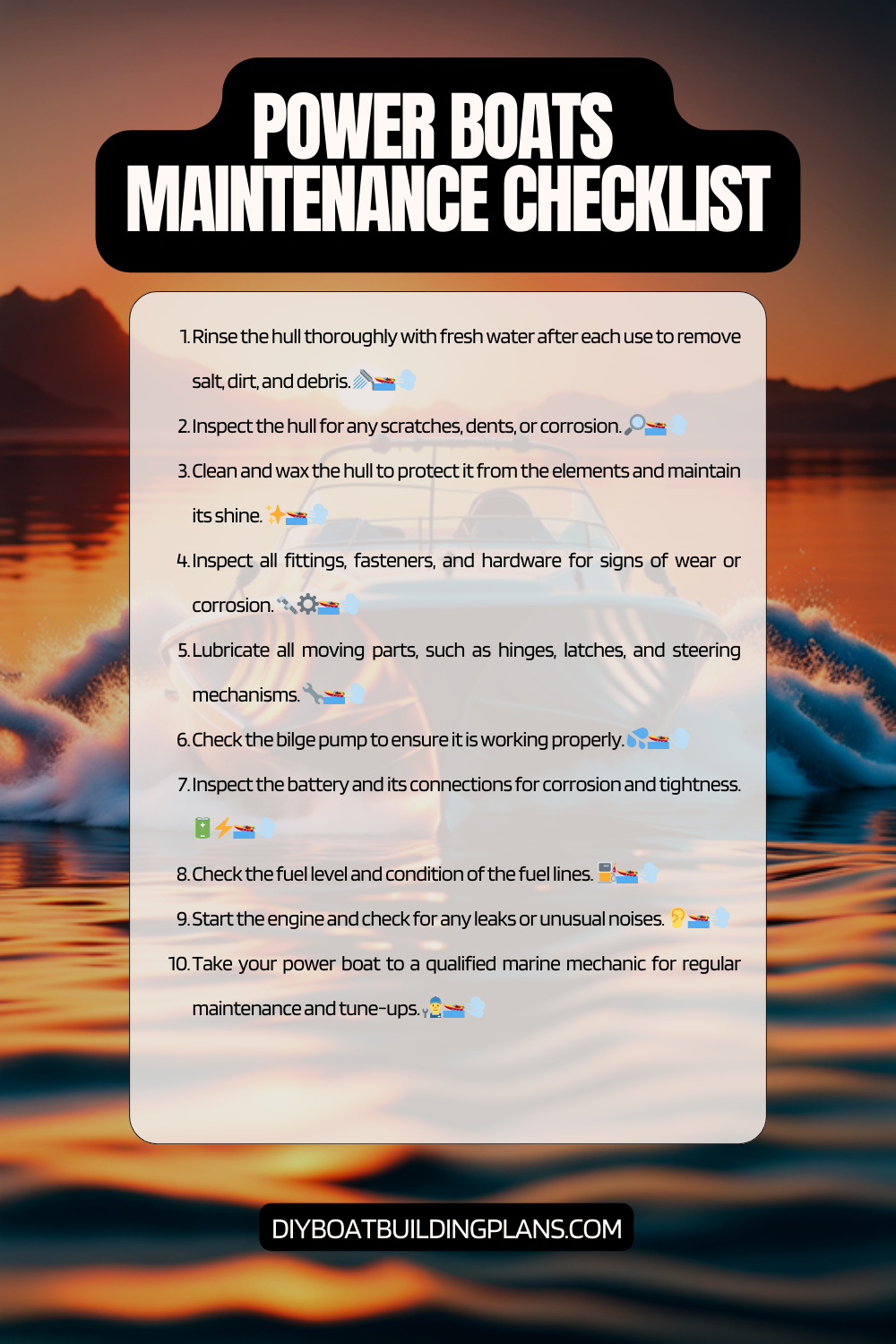Overview of Power Boat Maintenance Tips
Power boat maintenance refers to the regular upkeep and care required to keep a power boat in optimal condition. It involves a series of tasks and checks that need to be performed to ensure the boat’s safety, performance, and longevity. From engine maintenance to hull care, power boat maintenance covers a wide range of areas that require attention. Neglecting maintenance can lead to costly repairs, decreased performance, and even safety hazards. Therefore, it is crucial for power boat owners to understand the importance of regular maintenance and follow a comprehensive checklist to keep their boats in top shape.
Key Takeaways
- Regular maintenance is crucial for the longevity and performance of your power boat.
- A basic maintenance checklist should include checking the oil, filters, belts, and hoses.
- Engine maintenance tips include changing the oil and filter, checking the spark plugs, and inspecting the cooling system.
- Electrical system maintenance involves checking the battery, wiring, and connections.
- Winterizing your power boat is essential to prevent damage from freezing temperatures.

Importance of Regular Maintenance
Regular maintenance is essential for several reasons. Firstly, it helps prevent major breakdowns and costly repairs. By regularly inspecting and servicing various components of the boat, potential issues can be identified early on and addressed before they escalate into more significant problems. This proactive approach not only saves money but also ensures that the boat remains in good working condition.
Secondly, regular maintenance enhances the performance of the power boat. By keeping the engine, electrical system, fuel system, and other vital components in optimal condition, the boat can operate at its peak efficiency. This results in better fuel economy, smoother operation, and improved overall performance.
Lastly, regular maintenance ensures the safety of both the passengers and the boat itself. By regularly checking and maintaining critical systems such as the engine, electrical system, and hull, potential safety hazards can be identified and resolved promptly. This helps prevent accidents or breakdowns while out on the water.
Neglecting maintenance can have severe consequences. Components that are not properly maintained can fail unexpectedly, leading to breakdowns or even accidents. Additionally, neglecting routine maintenance can result in decreased performance and increased fuel consumption. Over time, this can lead to irreversible damage to the boat’s systems and components, requiring costly repairs or replacements.
Basic Maintenance Checklist
To ensure comprehensive maintenance, power boat owners should follow a basic maintenance checklist. This checklist should include pre-launch, post-launch, and routine maintenance tasks.
The pre-launch checklist involves inspecting various components before taking the boat out on the water. This includes checking the engine oil, fuel levels, battery charge, and ensuring all safety equipment is in place. Additionally, the hull should be inspected for any damage or debris that could affect the boat’s performance.
The post-launch checklist involves tasks that need to be performed after each outing. This includes rinsing the boat with fresh water to remove salt or debris, checking for any damage or wear, and inspecting the propeller for any entanglements or damage.
Routine maintenance tasks should be performed regularly to keep the boat in optimal condition. This includes checking and changing the engine oil, replacing filters, inspecting belts and hoses, and winterizing the engine during colder months.
By following a comprehensive maintenance checklist, power boat owners can ensure that all critical components are regularly inspected and maintained, reducing the risk of breakdowns and prolonging the life of their boats.
Engine Maintenance Tips
| Description | Tip |
| Regular Oil Changes | Changing your engine oil regularly helps to keep your engine running smoothly and prevents wear and tear on engine components. |
| Check Fluid Levels | Regularly checking your engine’s fluid levels, such as coolant and transmission fluid, can help prevent engine damage and prolong the life of your engine. |
| Replace Air Filters | Replacing your engine’s air filter regularly can help improve engine performance and fuel efficiency. |
| Inspect Belts and Hoses | Checking your engine’s belts and hoses for wear and tear can help prevent engine damage and avoid costly repairs. |
| Use Quality Fuel | Using high-quality fuel can help prevent engine damage and improve fuel efficiency. |
The engine is one of the most critical components of a power boat, and proper maintenance is essential to ensure its longevity and performance. Here are some engine maintenance tips:
1. Checking and changing oil: Regularly check the engine oil level using the dipstick and change it as recommended by the manufacturer. Clean oil helps lubricate the engine’s moving parts and prevents excessive wear.
2. Replacing filters: Replace fuel filters and oil filters as recommended by the manufacturer. Clogged filters can restrict fuel flow or reduce oil circulation, leading to engine problems.
3. Inspecting belts and hoses: Check belts for signs of wear or cracking and replace them if necessary. Inspect hoses for leaks or damage and replace them if needed. Damaged belts or hoses can cause engine overheating or failure.
4. Winterizing the engine: Before winter storage, follow the manufacturer’s guidelines to properly winterize the engine. This includes draining the cooling system, adding antifreeze, and protecting the engine from corrosion.
By regularly maintaining the engine, power boat owners can ensure its reliability, performance, and longevity.
Electrical System Maintenance
The electrical system of a power boat is responsible for powering various components such as lights, navigation systems, and pumps. Proper maintenance of the electrical system is crucial for safety and functionality. Here are some electrical system maintenance tips:
1. Checking and replacing batteries: Regularly check battery terminals for corrosion and clean them if necessary. Test battery voltage and replace old or weak batteries to ensure reliable power supply.
2. Inspecting wiring and connections: Inspect wiring for any signs of damage or wear, such as frayed insulation or loose connections. Repair or replace damaged wiring to prevent electrical malfunctions or short circuits.
3. Testing electrical components: Regularly test electrical components such as lights, pumps, and navigation systems to ensure they are functioning correctly. Replace any faulty components promptly.
By maintaining the electrical system, power boat owners can ensure a safe and reliable power supply for all onboard systems.
Fuel System Maintenance
The fuel system of a power boat is responsible for delivering fuel to the engine efficiently. Proper maintenance of the fuel system is crucial for optimal performance and preventing fuel-related issues. Here are some fuel system maintenance tips:
1. Checking fuel lines and connections: Regularly inspect fuel lines for any signs of leaks or damage. Ensure all connections are secure and tight. Replace any damaged or worn-out fuel lines.
2. Inspecting fuel tanks: Check fuel tanks for signs of corrosion or damage. Clean tanks regularly to remove any debris or contaminants that could clog the fuel system.
3. Cleaning fuel filters: Regularly clean or replace fuel filters to prevent clogging and ensure proper fuel flow to the engine. Clogged filters can lead to engine performance issues or even engine failure.
By maintaining the fuel system, power boat owners can ensure efficient fuel delivery and prevent fuel-related problems that could affect the boat’s performance.
Hull Maintenance
The hull of a power boat is exposed to various elements such as water, sun, and debris. Proper maintenance of the hull is crucial for both aesthetics and performance. Here are some hull maintenance tips:
1. Cleaning and waxing the hull: Regularly clean the hull with a mild detergent and rinse thoroughly to remove salt, dirt, or debris. Apply a high-quality wax to protect the hull from UV damage and maintain its shine.
2. Inspecting and repairing gelcoat: Inspect the gelcoat for any cracks, chips, or blisters. Repair any damage promptly to prevent water intrusion and further deterioration.
3. Checking and replacing anodes: Anodes are sacrificial metals that protect the boat’s metal components from corrosion. Regularly check anodes for signs of wear or depletion and replace them as needed.
By maintaining the hull, power boat owners can ensure a clean and well-protected exterior, as well as prevent potential structural damage.
Propeller Maintenance
The propeller is responsible for propelling the power boat through the water, and proper maintenance is crucial for optimal performance. Here are some propeller maintenance tips:
1. Inspecting and repairing propellers: Regularly inspect propellers for any signs of damage, such as dents or bent blades. Repair or replace damaged propellers to ensure smooth operation.
2. Checking and replacing propeller shafts: Inspect propeller shafts for any signs of wear or misalignment. Replace worn-out or damaged shafts to prevent vibration or loss of efficiency.
3. Balancing propellers: Imbalanced propellers can cause excessive vibration and reduce performance. Regularly check propellers for balance and have them professionally balanced if necessary.
By maintaining the propeller, power boat owners can ensure smooth and efficient propulsion, resulting in better performance and fuel economy.
Trailer Maintenance
The trailer is an essential component for transporting the power boat to and from the water. Proper maintenance of the trailer is crucial for safety and functionality. Here are some trailer maintenance tips:
1. Checking and maintaining tires: Regularly inspect trailer tires for signs of wear, cracks, or low pressure. Replace worn-out or damaged tires and maintain proper tire pressure for safe towing.
2. Inspecting and repairing brakes: Check trailer brakes for proper operation and adjust or repair them as needed. Properly functioning brakes are essential for safe towing.
3. Lubricating moving parts: Regularly lubricate moving parts such as hinges, rollers, and winches to ensure smooth operation and prevent rust or corrosion.
By maintaining the trailer, power boat owners can ensure safe and hassle-free transportation of their boats.
Download over 500 Boat Plans. Click on the link below.
-->Click Here<--
Winterizing Your Power Boat
Winterizing your power boat is crucial if you live in an area with cold winters or if you plan to store your boat for an extended period. Proper winterization helps protect the boat from freezing temperatures and prevents damage to various systems. Here are some steps to winterize a power boat:
1. Draining the cooling system: Drain the engine’s cooling system to remove any water that could freeze and cause damage. Follow the manufacturer’s guidelines for proper draining procedures.
2. Adding antifreeze: Add antifreeze to the engine’s cooling system to further protect it from freezing temperatures. Use antifreeze specifically designed for marine engines.
3. Protecting the engine from corrosion: Apply a corrosion inhibitor to the engine’s internal components to protect them during storage. Follow the manufacturer’s recommendations for proper application.
4. Storing batteries: Remove batteries from the boat and store them in a cool, dry place. Charge them periodically to maintain their charge level.
By properly winterizing your power boat, you can ensure that it remains in good condition during the colder months and is ready for use when the boating season returns.
Power Boat Maintenance Checklist

Conclusion – Power Boat Maintenance Tips
In conclusion, power boat maintenance is crucial for ensuring optimal performance, longevity, and safety. Regular maintenance tasks such as engine maintenance, electrical system maintenance, fuel system maintenance, hull maintenance, propeller maintenance, and trailer maintenance should be performed to keep the boat in top shape.
By following a comprehensive maintenance checklist and regularly inspecting and servicing various components, power boat owners can prevent major breakdowns, enhance performance, and ensure the safety of both the passengers and the boat itself.
It is essential to understand the importance of power boat maintenance and to make it a regular part of boating routines. By investing time and effort into maintaining a power boat, owners can enjoy many years of trouble-free boating and maximize their investment. So, take care of your power boat, follow the maintenance tips outlined in this article, and enjoy many memorable adventures on the water.
FAQs – Power Boat Maintenance Tips
What is power boat maintenance?
Power boat maintenance refers to the regular upkeep and repair of a power boat to ensure its optimal performance and longevity.
Why is power boat maintenance important?
Power boat maintenance is important to prevent breakdowns, ensure safety, and extend the life of the boat. Regular maintenance can also help identify potential problems before they become major issues.
What are some common power boat maintenance tasks?
Common power boat maintenance tasks include changing the oil and filters, checking and replacing spark plugs, inspecting and cleaning the propeller, checking and replacing the battery, and cleaning and polishing the boat.
How often should power boat maintenance be performed?
Power boat maintenance should be performed regularly, according to the manufacturer’s recommendations. This may vary depending on the type of boat and its usage, but generally, maintenance should be performed at least once a year.
Can power boat maintenance be done by the owner?
Yes, many power boat maintenance tasks can be done by the owner, especially if they have some mechanical knowledge and experience. However, some tasks may require the expertise of a professional mechanic.
What are some tips for maintaining a power boat?
Some tips for maintaining a power boat include keeping it clean and dry, checking the oil and other fluids regularly, inspecting the propeller and hull for damage, and storing the boat properly when not in use. It is also important to follow the manufacturer’s recommended maintenance schedule.



